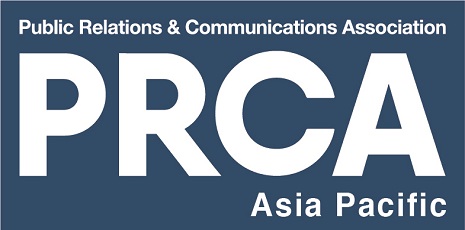Author: Karine Lohitnavy-Frick
This article was originally posted on The Nation (Thailand) website

From the outset, we were on a mission to create a more professional, ethical, and prosperous PR industry, and we have already managed to achieve a lot in this direction. We organised professional events, had productive meetings, and held the first PRCA Thailand award ceremony.
However, there is still a lot to be done regarding how the association can support the public relations profession in the country. In particular, I would like to discuss the importance of promoting ethical standards.
As advocates for their clients, PR professionals play a crucial role in enhancing their reputation and promoting their interests. PR practitioners must also consider the broader public interest. It is essential to assess messages’ social, environmental, and ethical implications. PR professionals can strike a balance between advocacy and responsible communication. Successful campaigns exemplify how effective communication can align with broader social responsibility.


At the same time, it is no secret that the PR industry enjoys a somewhat controversial reputation; some say that it is intentionally deceptive, superficial, and manipulative. This is why, as PR professionals, we are not just tasked with promoting and protecting our clients’ reputations; we should also be responsible for upholding ethical standards and fostering accountability in our industry. In a world where communication is paramount, we must recognise and uphold the principles of ethical conduct in public relations. Professional associations like PRCA should play a crucial role in ensuring these standards are adhered to, fostering a sense of trust and credibility between organisations, practitioners, and the public.
How exactly can we achieve this and move from just talk to action? First and foremost, we need to consider professional associations’ role as custodians of ethical guidelines. These associations establish codes of ethics that outline the expected conduct of practitioners. These codes provide a framework that guides professionals in their decision-making processes, helping them navigate complex situations and dilemmas. By setting these standards, associations ensure that practitioners uphold the values of honesty, integrity, and transparency, fostering a culture of ethical behaviour. This is one of the things we need to focus on.

Another important area that PRCA Thailand will work on is the development of educational resources and training programs for our members. Ongoing professional development and ethical education are integral to maintaining ethical standards in public relations. These initiatives should focus on the technical aspects of public relations and the ethical considerations that come with the profession. Recognising the value of continuous learning, certifications, and ethical education programs is important, which helps PR professionals stay informed about emerging ethical issues and best practices. By investing in professional growth, practitioners can remain at the forefront of ethical considerations and contribute to an ethical and accountable public relations industry. Through workshops, seminars, and conferences, we will provide a platform for practitioners to learn, discuss, and debate ethical issues, enhancing their understanding of the ethical implications of their work. This will equip professionals with the knowledge and skills necessary to navigate ethical challenges, contributing to developing a more ethical and responsible PR industry in the kingdom.
Another vital function of PRCA in this context is advocating for ethical behaviour. The association should act as a collective voice for the profession, championing the importance of ethical conduct within the industry and beyond. In this regard, we will need to collaborate with other stakeholders, such as media organisations, key opinion leaders, and the public, to raise awareness about the significance of ethical standards in public relations. Through advocacy efforts, PRCA should promote a culture of transparency, accountability, and responsible communication, thereby enhancing the credibility and reputation of the PR profession.

To support this objective, we plan to engage in research and thought leadership to advance the ethical practice of public relations. By sharing best practices to promote ethical behaviour within the industry, we hope to contribute to developing ethical guidelines that are relevant and responsive to the evolving challenges of the digital age, including issues related to social media, data privacy, and fake news. By staying at the forefront of emerging trends and ethical dilemmas, PRCA Thailand can empower professionals with the knowledge and tools to make ethical decisions in an ever-changing communication landscape. Transparency, disclosure, and an unwavering commitment to act in the best interest of all stakeholders are paramount. By demonstrating integrity and professionalism, PR professionals can better navigate challenges while preserving their ethical standing.
Finally, professional associations like PRCA should play a pivotal role in enforcing ethical standards. There is important work to be done in establishing mechanisms to monitor and regulate the conduct of members. This includes the establishment of ethics committees, which are responsible for investigating complaints and ensuring that practitioners adhere to the established codes of ethics. By providing a system of checks and balances, PRCA can maintain professional accountability and safeguard the interests of both practitioners and the public. This enforcement protects the profession’s reputation and ensures that unethical behaviour is addressed promptly and appropriately. This is something we have yet to do, but we will work on it in the near future.
I hope that together, we can greatly promote ethical standards within the industry. Through the establishment of codes of ethics, educational initiatives, advocacy efforts, enforcement mechanisms, and thought leadership, PRCA Thailand can foster a more ethical professional culture. We want to support the development of an industry that upholds the values of honesty, integrity, and transparency, essential for building trust and credibility in the profession. This is the only way for public relations practitioners to protect their client’s interests and contribute to society’s overall welfare. Together, we can create a responsible and ethical public relations industry that serves the best interests of organisations, practitioners, and the public.
The article is contributed by Karine Lohitnavy-Frick.
